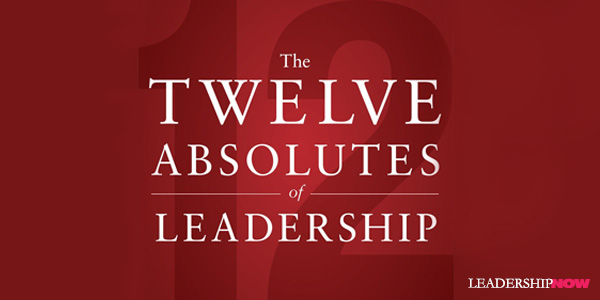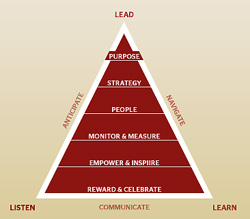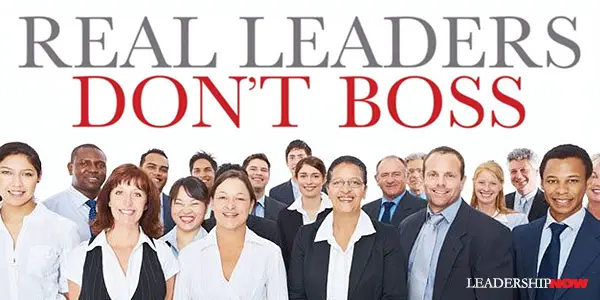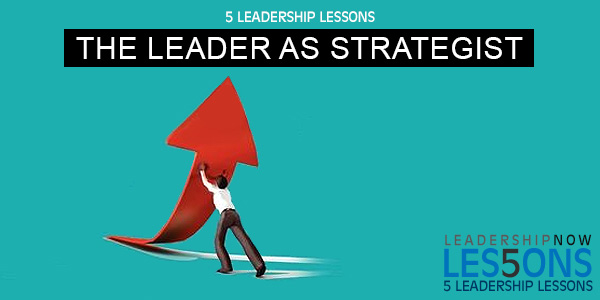 Leading Blog | Posts by Month |
 Leading Blog | Posts by Month |
05.31.12

LeadershipNow 140: May 2012 Compilation
Posted by Michael McKinney at 10:46 AM
05.23.12

InsideOut Enneagram
THE Enneagram is a method for identifying your personality type and is a valuable system for learning about yourself and others. The Enneagram system defines nine basic personality types of human nature and their complex interrelationships. Wendy Appel has tackled the Enneagram’s subtleties and complexities in InsideOut Enneagram. Her book makes practical the Enneagram system by use of clear explanations of each Type, case studies, and a structured journaling process. There is a section on Type and team interactions that examines predictable points of tension, reactive patterns, and synergies between all of the possible Enneagram Type pairs. Her goal is to help you to see and think differently about your strengths, your weaknesses, and mostly the subterranean habits of mind and motivations that drive you and others. It’s a journey of self-mastery. Appel observes that “most of us focus our attention outward and neglect our inner life. We think that change is out there. Instead of tuning in to the language of our head, heart, and gut, we are busy looking outside, ahead, and down.” Understanding who we are, uncovering our blind spots, and creating a game plan to master our thinking and behavior, is vital to developing our leadership potential and to better understand those we lead. The subconscious mind, where our habits, patterns, and beliefs reside, directs the course of our lives, and most of us are unaware that this is happening. To transform as leaders and to transform our organizations require that we examine our core beliefs—both individual and collective. If not, we simply make iterative changes, and that won’t be enough to succeed in today’s globalized economy. Appel says she often gets asked “about the difference between the MBTI and the Enneagram, or whether MBTI Type preferences neatly fit into the Enneagram Types. The most simplistic way to understand how the systems complement each other is that the MBTI describes preferences for how we do things (get our energy, make decisions, gather information, and so on); the Enneagram describes why and how we behave as we do (beliefs, fears, desires, focus of attention), and how we go about getting our perceived needs met.” InsideOut Enneagram is an opportunity to discover what is working for you, what is not working for you, why, and what you can do about it. You will find descriptions of each type on her website. 
Posted by Michael McKinney at 07:08 PM
05.21.12

The Twelve Absolutes of Leadership
Gary Burnison considers leadership to be a privilege. Most people like the idea of leadership but few count the cost. He says, “To lead is to be all in, transparent and accessible, calm in the face of upset and even crisis, and always mindful that you are a steward of something bigger than yourself.” That’s not easy. To whom much is given much is required. That’s the part that easily trips us up. His book, The Twelve Absolutes of Leadership offers insight from his lifetime in leadership, interacting with some of the world's top leaders in the C-suite and boardrooms, as well as heads of state. He offers a framework based on fundamental human truths and the essential elements of leadership. The “Absolutes” are building blocks that must be present regardless of your leadership style or approach. Here are the 12 Absolutes with Burnison’s thoughts on each:

Burnison reminds us that leadership is about people. “To lead,” he writes, “is to make an emotional connection on a very real and human level in every interaction.” 
Posted by Michael McKinney at 05:47 PM
05.17.12

Leading Views: The Star Follower Frequently, when you hear a leader say that they want followers they can trust, what they mean is they want followers who will do what they say and never question them. When they do this, they are letting their insecurities show. It’s not a healthy relationship for either the leader or the follower. The leader becomes isolated and the followers do not grow into their own potential. Frequently, when you hear a leader say that they want followers they can trust, what they mean is they want followers who will do what they say and never question them. When they do this, they are letting their insecurities show. It’s not a healthy relationship for either the leader or the follower. The leader becomes isolated and the followers do not grow into their own potential.
Robert Kelly, author of The Power of Followership, described the leader/follower dynamic in The Art of Followership, this way: Star followers think for themselves, are very active, and have very positive energy. They do not accept the leader’s decision without their own independent evaluation of its soundness. If they agree with the leader, they give full support. If they disagree, they challenge the leader, offering constructive alternatives that will help the leader and organization get where they want to go. Some people view these people as really “leaders in disguise,” but this is basically because those people have a hard time accepting that followers can display such independence and positive behavior. Star followers are often referred to as “my right-person” or my “go-to person.”
Posted by Michael McKinney at 01:58 PM
05.16.12

Real Leaders Don’t Boss
RICH EICH says that Real Leaders Don’t Boss. “Real leaders are rare in today’s fast-moving, financially driven world. In their place are fast-track wannabes and imposters, intent on instant gratification in the form of quick (and unsustainable) bottom-line results.” As Eich observes, there are far too many bosses and not enough leaders. Bosses who are too narrowly focused, see employees as tools, are respecters of position, controls rather than empowers, and sets expectations for others that they wouldn’t wish on themselves. Eich identifies and then dedicates a chapter to each of eight essentials of effective leadership:
These eight essentials are about treating people right. They also reflect an extended range of responses to people and situations that “bosses” either don’t possess or exercise. “Real” leaders inspire others to lead wherever they find themselves in the organization. They help them to find meaning in their own lives. Leadership isn’t something you are born with, it is something that is thoughtfully developed throughout life. Eich notes, “Most real leaders aren’t born with some innate ability transforming them into magnets that attract others to follow them. They may have expectations placed on them to rise above their present situation or environment; they may even have an inborn strong desire to serve others and accomplish something unique. In most cases, however, leadership skills are developed and honed in the battlefield of life, where leaders discover their drive, passion, and wisdom.” It is these opportunities to rise above our present situation and environment that we should be seeking out and providing for our children—the next generation of leaders. 
Posted by Michael McKinney at 12:14 PM
05.14.12

5 Leadership Lessons: The Leader as Strategist
The Strategist is not a book about strategy, but a book designed to equip and inspire you to be a strategist. Author Cynthia Montgomery, says we have reduced strategy to a right-brain exercise and have lost sight of what it takes to lead the effort. The essential component of the strategy-making process is the leader. Leaders must not ignore or underestimate their crucial and ongoing role as a strategist. “Strategy is not a destination or a solution,” writes Montgomery. “It is not a problem to be solved and settled. It’s a journey. It needs continuous, not intermittent, leadership. It needs a strategist.”
What does my organization bring to the world?
As a leader, you must answer them. 
Posted by Michael McKinney at 11:13 PM
05.08.12

What Matters Now
What Matters Now by Gary Hamel is an important book. It is an invitation to rethink the fundamental assumptions we have about capitalism, management, institutions, and life at work. It is, as Hamel describes it, “a blueprint for creating organizations that are fit for the future and fit for human beings.” It would be wrong to assume that hierarchies and managers will go away. But we need to rethink how we operate within our organizations. The book is divided into five fundamental, make-or-break issues that will determine whether your organization thrives or dives in the years ahead: values, innovation, adaptability, passion and ideology. Here are some of his thoughts that become more powerful as they sink in:Values Matter Now. • What matters now is that managers embrace the responsibilities of stewardship. • Every institution rests on moral footings, and there is no force that can erode those foundations more rapidly than a cataract of self-interest. • I think corporate life is so manifestly profane, so mechanical, mundane, and materialistic, that any attempt to inject a spiritual note feels wildly out of place—the workplace equivalent of reading the Bible in a brothel. Innovation Matters Now. • Post these simple questions on your company’s idea wiki: First, what are the thoughtless little ways we irritate customers and what can we do to change that? And second, what are the small, unexpected delights we could deliver to our customers at virtually no additional cost? • Whenever you identify a convergent belief, ask, does this rest on some inviolable law of physics, or is it simply an artifact of our devotion to precedent? By working systematically to surface these invisible dogmas, you can turn reactionaries into rebels. • To innovate, you need to see your organization and the world around it as a portfolio of skills and assets than can be endlessly recombined into new products and businesses. Adaptability Matters Now. • To thrive in turbulent times, organizations must become a bit more disorganized and unmanaged—less structured, less hierarchical, and less routinized. • There are only two things, I think, that can throw our habits into sharp relief: a crisis that brutally exposes our collective myopia, or a mission so compelling and preposterous that it forces us to rethink our time-worn practices. • To put it bluntly, the conversation about “where we go next” should be dominated by individuals who have their emotional equity invested in the future rather than the past. It needs to be led by individuals who don’t feel the need to defend decisions that were taken ten or twenty years ago. Passion Matters Now. • It’s impossible to unleash human capabilities without first expanding the scope of employee autonomy. People need the freedom to challenge precedent, to “waste” time, to go outside of channels, to experiment, to take risks, and to follow their passions. How, many policies in your company exist only to preserve that fiction that the higher-ups really are in control? How many rules enforce standardization at the expense of initiative and passion, while delivering few if any performance benefits? Ideology Matters Now. • The creed of control reigns supreme. If you doubt this, ask yourself: Is your organization any less rules-driven than it was ten or twenty years ago? Do people on the front lines feel any less controlled? Are their freedoms any less abridged? And are little cogs any less obsesses with becoming big cogs? • Give someone monarch-like authority, and sooner or later there will be a royal screw-up. • We don’t have to content ourselves with an organizational model that was designed to serve the interests of ancient military commanders and smokestack-era CEOs. It’s time to re-invent our leadership. This book will help in that process. 
Posted by Michael McKinney at 09:54 PM
05.06.12

Get Real. Get Outside. In a print campaign directed at people immersed in the modern digital world for garden power tool company STIHL Australia, we are encouraged to discover the simple joys to be found outside. “Get Real. Get Outside.” It was developed by Whybin\TBWA\Tequila (Australia).    
Posted by Michael McKinney at 09:01 PM
05.03.12

Stuck? Flip the Script
THE premise of Flip the Script is approaching everything in your life with a new mindset: you can’t control circumstances but you can manage them. Author Bill Wackermann says that the first step is to “embrace the notion that turning a situation around and creating new opportunities takes the desire to face yourself as you really are and a willingness to see the potential that could be hiding right in front of you.” Wackermann believes that anything can be flipped—any expectation can be turned upside down. It is a skill that can be learned and developed through practice. The book is divided into three sections: understanding yourself, navigating how to build your flip, and winning, overcoming obstacles and putting it all together. All three steps are important, but the first section is the meat of the book and the one that requires the most attention because this is where we get in our own way most of the time. Understanding yourself and your situation requires honesty. It doesn’t do any good to make excuses here; that only clouds the issues. “Designing your way around obstacles starts with a proper mind-set.” Begin by asking, “So what if …?” So what if there isn’t enough money? We are short on people? So what if they don’t come through? “So what if?” is a “mental tactic that allows you to force yourself to consider alternative viewpoints and plan for the worst.” Taking responsibility for where you are in this moment, is crucial and once done can actually provide us with a great deal of freedom. Blaming others imprisons us. Wackermann suggests asking yourself:
In conjunction with those questions, you might also ask yourself:
Wackerman says blame is like candy; too much is unhealthful and will make you sick. “What’s standing between you and success right now is you. Not your folks, not your history, just you. I’m not suggesting that you deny your past, but I am advising that you refuse to live there because it just might kill your future.” He covers common areas of self-sabotage like Know-It-All-Ism, My Boss Hates Me, Taking Things Personally, Perception is Reality, and Excusing Yourself. Wackermann leaves you with much to think about. Here are a few more ideas to keep in mind: Flipping means managing all aspects of a situation, including the internal and external…A successful flip requires that we not confuse our motives with what the world sees. To move our goals forward, we have to be mature enough to recognize that perception, unfortunately, is reality. That is business, and our actions and behavior shape how others see us and see our potential for growth. The good news is that we can control in way both big and small how the world sees us.

Posted by Michael McKinney at 09:41 AM
05.01.12

First Look: Leadership Books for May 2012Here's a look at some of the best leadership books to be released in May.




For bulk orders call 1-800-423-8273  Build your leadership library with these specials on over 120 titles. All titles are at least 40% off the list price and are available only in limited quantities. “You are the same today you’ll be five years from now except for the books you read and the people you meet.” — Charlie Tremendous Jones
Posted by Michael McKinney at 08:01 AM
|
BUILD YOUR KNOWLEDGE


How to Do Your Start-Up Right STRAIGHT TALK FOR START-UPS 
Grow Your Leadership Skills NEW AND UPCOMING LEADERSHIP BOOKS 
Leadership Minute BITE-SIZE CONCEPTS YOU CAN CHEW ON 
Classic Leadership Books BOOKS TO READ BEFORE YOU LEAD |
|